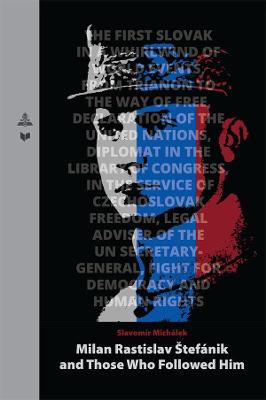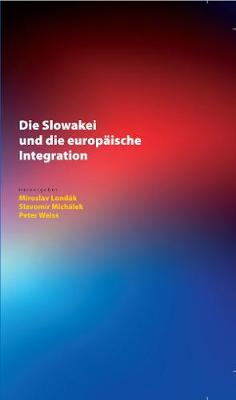Spectrum Slovakia
2 primary works
Book 23
This book presents seven diplomats, seven Slovaks. Milan Rastislav Stefanik, Stefan Osusky, Vladimir S. Hurban, Vladimir M. Palic, Juraj Slavik, Ivan Krno and Jan Papanek. They were also authors, poets, soldiers, politicians, and international lawyers. They represent a selective and subjective sample of Czecho-Slovak diplomats in the fi rst half of the 20th century. The book is focused not only on them as men, but on their stories as well. Their chronicles provide insight into the era, relationships and situations which shaped their actions. These seven lives were linked by common characteristics such as strong national awareness, the fi ght for democracy and Czecho- Slovak statehood, as well as disgust with Nazi and Communist totalitarianism, and firm Lutheran roots. Modern Slovak history, whether viewed internally or in a Central-European or pan-European contexts, underwent dynamic transformation at the beginning of the 20th century.
The entire world began to change and Slovaks were no exception. It is only natural for every nation or state to seek the roots of its national identity. As this identity is embodied by the people and personalities who created it, we perceive the past through their lives. It is a privilege that as a small European nation, Slovaks can say that their dignitaries have succeeded worldwide. It is a great honor that their work can be seen in the Treaty of Trianon, the Declaration of the United Nations, the UN Charter, and everywhere where the voice of freedom and democracy was rising.
Book 25
Die Slowakei Und Die Europaeische Integration
by Peter Weiss, Slavomir Michalek, and Miroslav Londak
Das Buch bringt dem Leser den komplexen und schwierigen Prozess der Ausformung der modernen slowakischen Nation naher, zuerst innerhalb des Ungarischen Koenigreichs und seit 1918 in der Tschechoslowakei. Der Prozess mundete schliesslich in die staatliche Unabhangigkeit der Slowakei am 1.1.1993. Die Autoren legen die AEhnlichkeiten und Unterschiede im Empfinden der gemeinsamen Geschichte der Tschechen und Slowaken dar, einschliesslich der 44 Jahre nach dem Zweiten Weltkrieg, als die Tschechoslowakische Republik infolge des Munchner Abkommens und der spaten Eroeffnung der zweiten Front in die Sphare des Einflusses der von Stalin beherrschten Sowjetunion geriet.

